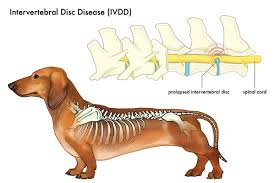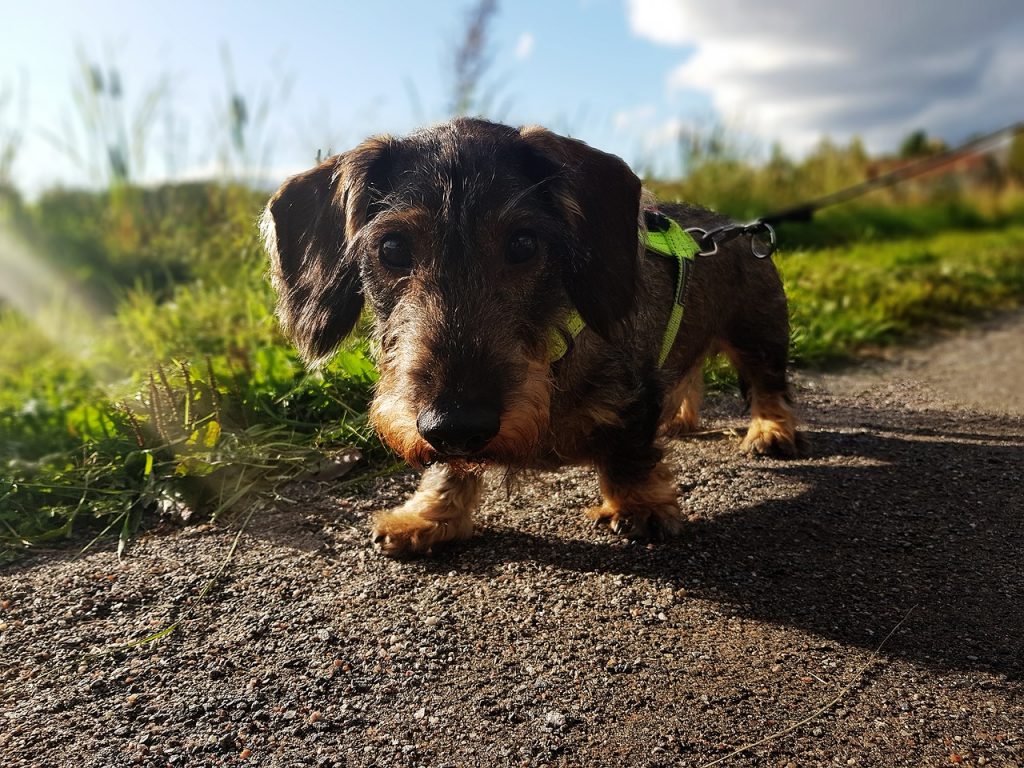Just like people, dogs can develop back problems over the course of their lives. Simple mechanical back pain and Intervertebral Disk Disease (IVDD) are the most common reasons for back pain.
In simple mechanical back pain abnormal stresses and strain are placed on the muscles of the spine causing pain. This may be due to adjacent areas such as the hips or shoulders not working optimally and making areas of the spine work harder. It may also be due to excess weight or exercise habits. Scans will often come back normal and there is no neurological deficit.
In IVDD the discs, or cushions between the spinal bones, deteriorate leading to collapse, bulge, or herniation. Symptoms can range from mild pain (lowered head, reluctance to move or exercise, stiffness, sensitivity to touch) to severe pain (lameness, dragging legs, inability to stand, crying when touched or moving, trembling, staggering, and collapse). They could also experience partial or complete paralysis and loss of bowel and bladder control if the spinal cord is compromised.

Chondrodystrophic dogs (Dachshund, Bulldog, Poodle, Beagle, Lhasa Apso, etc.) account for the majority of all disc ruptures due to a premature degeneration of the spinal discs. The Dachshund accounts for ~45-70% of all cases. In these dogs the average onset of clinical signs is between 3–6 years old. Non-chondrodystrophic dogs (Labrador, Retrievers, German Shepherd, etc.) often present between 5-12 years old. Thoracolumbar discs (mid back / low back) account for 65% of all disc ruptures, with the cervical spine (neck) accounting for approximately 18% of cases.
Conservative treatment with rest, confinement, manual therapy, rehabilitation, and pain medications is usually the first line of treatment for dogs with back pain and no / mild neurological deficits. If the dog is not responding to the conservative treatment or there is moderate to severe neurological deficit, further consultation with your Vet may result in a referral to a Veterinary Specialist to explore your options.
If your dog has been diagnosed with back pain or IVDD consider booking an appointment to discuss treatment and how we can help.
Also see the following article on ‘The Hip Flexors and Iliopsoas Strain in Dogs‘ for more about issues that may masquerade as back or hip pain.

